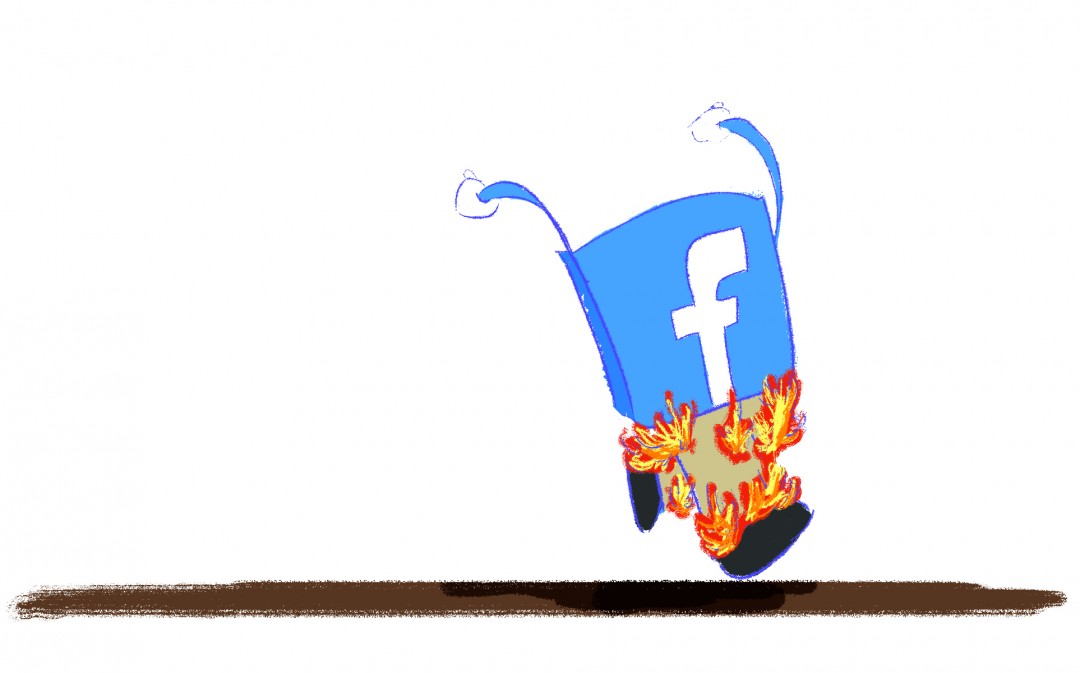Ever since Mark Zuckerberg first launched Facebook from his dorm room at Harvard University, the website has been the site of multiple ethical and privacy scandals. In October, Facebook once again found itself under fire after a massive leak of internal documents. Its apparent solution: rebrand to Meta and start fresh.
But why now, amid the chaos? According to Facebook, the name change purely symbolizes its optimism for the future of technology. However, from the outside looking in, the name change seems like Facebook’s way of shaking off months of negative press. After all, other companies have rebranded and thrived under new names, including Nissan, which used to be Datsun, and LG Electronics, which was previously Lucky-Goldstar Group.
However, unlike Nissan and LG, Facebook’s rebrand will ultimately be unsuccessful because it is taking place during a major scandal. Over many years of corporate greed and poor leadership, Facebook has fostered a toxic and dishonest brand. As such, the company has found it harder to attract and retain talented employees, maintain partnerships, and keep advertising steady. Thus, a name change will do nothing to heal years of lies; people will continue to remember Facebook as a power-hungry, democracy-threatening corporation.
So, why bother changing names at all?
In a keynote presentation last October, Zuckerberg announced that the name Meta represents the ‘metaverse’ that Facebook intends on creating. His metaverse would be a virtual reality world where users would be able to virtually play games, attend meetings, shop for art, hang out with others, or do pretty much anything else that could be done in the real world. Although it’s clearly ambitious, hints of a virtual world have always existed, at least in the forms of video games like Second Life, Roblox, or Fortnite. Zuckerberg believes that a metaverse will be the successor to the mobile internet and is willing to stake Facebook’s future on this bet.
Admittedly, Facebook’s metaverse would solve some of its major problems. A metaverse would address its aging user population. Despite the fact that the majority of Facebook users are aged 25–34, there is a strong skew in its userbase toward the older generations. Compared to a social networking competitor like TikTok, Facebook caters to a significantly older population. Although it started as a college-exclusive social networking platform, its student population is slowly diminishing. Thus, new technology and innovations can help recapture younger generations.
A metaverse would also set Facebook free from its competitors and new tech regulations. Currently, Facebook’s success is highly dependent on other corporations, since Apple and Google generally hold more power in app disputes. Similarly, as policymakers become increasingly aware of the dangers of tech, new Federal Trade Commission (FTC) regulations now prohibit many of Facebook’s financial strategies. Facebook hopes to find new freedom in an unknown and unregulated territory to escape rules imposed by competitors and policymakers.
However, while the metaverse can fix many things, Facebook must do more to fix its reputation after multiple scandals. Over the past five years, Facebook has been accused of influencing election results in the Philippines, and the US, and well as the Brexit vote in the UK. Furthermore, in the Cambridge Analytica scandal, Facebook gathered data on over 87 million users without their consent.
Other reports found Facebook guilty of making agreements with device makers to share personal data with them. Users’ information and privacy are put at risk, which unnecessarily puts them in harm’s way. This is especially relevant for high school and college students who frequently post online.
In 2019, Facebook was found circulating an illegal app on the Apple and Google Play stores. This app allowed Facebook to use VPNs to track users’ usage and web surfing habits in exchange for $20 a month. More recently, Frances Haugen, a former employee, leaked internal documents exposing that Facebook knew of Instagram’s harmful effects on body image issues among teenagers. Facebook’s remodel does nothing to address these issues — rather it hopes to simply sweep them under the rug.
Facebook has never been ethical. Its very inspiration was based on a sexist website that hosted a “hot or not” game, where students would compare the photos of two female students and decide who was more attractive. After immense student backlash, Zuckerberg was charged with breach of security, copyright violation, and violations of individual privacy. Looking back at recent Facebook headlines, it is clear that nothing has changed. Zuckerberg continues to ignore individual privacy and security in favour of profit.
While there is certainly no denying the innovation behind a Facebook metaverse, the remodel does not solve cultural problems within its existing product. Neither a new name or new platform addresses its magnitude of scandals. As one commenter so delicately put it: “Zuckerberg is trying to put lipstick on a pig.” Facebook will continue to operate as a data-stealing monopoly, and a virtual reality world will make this all the easier.
Facebook must be held accountable for its past scandals and infringements, regardless of the name it chooses to operate under.
Vincent Zhang is a second-year financial economics student at Innis College.


